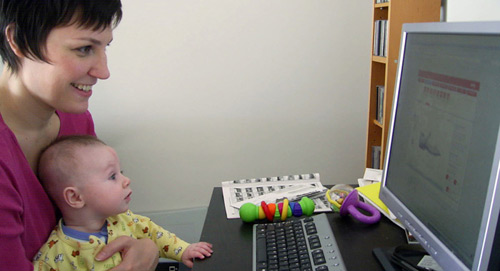The economic downshift has been tough on businesses, tough on jobs, tough on publishing & media, and tough on the advertisers, business partners and customers who support publishing and media.
It is clear that no business or individual is safe from the affects. Many folks I speak to show a great concern about their business and their careers. These are dedicated professionals who have families to support.
So here are some tips on how to not just stay relevant, but become essential to your business, as the economy continues to rattle our culture:
- Focus on Quality – Even on the Web

If you work on traditional media – a magazine, a newspaper, radio, television, etc. – I would bet that you, your staff, and your organization put an unbelievable amount of resources into the quality of each production. Processes have been honed over decades, expectations are set in stone, and roles are very clear.And that is no longer enough.
Your customers, your readers, your viewers – the people who are relying on you and supporting you are using the web. And, when they experience your work on the web, if it is anything short of exceptional, then the brand equity you’ve built over decades is squandered.
If you are a journalist who creates an article for print, you should make serious consideration to the ways you can improve the web version of the article – not just adding links, but re-imagining what the article can be online. Your readers aren’t reading something on the web with the same limitations of print, and they know this. Is your work organized to the way people read online? Are images and graphics integrated into it? Are links not just present, but truly useful?
The web is your portfolio. When a colleague, a friend, a source looks up your name on the web, what do you want them to see? A 3,500 word piece that looked great in print, but is now dumped online as a single paragraph? Should they have to hunt and peck to find more about you on the web, or will you take control to steer them in the right direction?
- Connect with Your Network Online

If you still rely exclusively on your rolodex, planner, or the address book in your computer, email program or mobile device, then you have lost an edge over others in your industry.If you are not easily found on the web, then for many people, you don’t exist. You are not findable, you are not reachable, old connections become irrelevant, and new connections become missed opportunities.
Social networks like Facebook and LinkedIn and Twitter are not just about silly things – they are your link to professionals from around the world, potential sources, and people who might be searching for an expert just like yourself. For a journalist or media professional who meets hundreds of people a year through their work, social networks can be a low-maintenance way to stay in touch, and keep those valuable connections alive.
Again and again, journalists tell me about surprising connections that have come from using services like Twitter. These connections were wholly unexpected, and helped them do their jobs even better.
I understand the reticence that many people have to these services – to “putting yourself out there” in such an open and uncontrolled way online. I do think that you can take small steps into this arena without diving in. Either way though, your network is one of the most powerful things you have built in your career. Why not find new ways to connect with those who you respect the most – those who can help you the most.
- Build Online Skills

If you don’t learn how to create compelling online content, then you are 50% as qualified as the next person in your industry.You’re busy, I understand that. Perhaps there are web managers in your office that handle that side of things, and it is easy enough to let that process happen without you.
Usability studies show that people consume information and media differently on the web. For a content creator, this is essential to understand more deeply. So why not put in the extra time to ensure that content you created for offline media looks good when it is brought online.
As you learn new skills, you will invariably become more valuable to your organization, and learn new ways to think about the work that you do.
- Understand Your Audience, Their Needs, and Their Behaviors

If you are only considering the way your audience USED to use your work and products, then you are quickly becoming irrelevant to their needs and the many ways that their behaviors are changing.Focus intently on the needs of your customers. Don’t just ask for feedback from those in your business who you know very well, and are very similar to you – go out of your way to get feedback from a wide range of people in a wide range of roles.
Do usability testing on your product; do customer research more often and spend more than 15 minutes reviewing the report; look at web metrics every week; have conversations that are difficult, not easy; talk about what you are seeing and ask your colleagues what they are seeing.
This is where you see how the music industry (and now newspapers) dropped the ball in terms of the online opportunity. Instead of focusing on the needs of their customers, they focused on who to blame for the behavior shift. Then, they tried to find the biggest corporation with the deepest pockets who they could sue.
The music industry first targeted Napster, and once they ran out of easy targets, they did the unthinkable: they went after music fans, suing those who they needed most.
Newspapers seem to be following this lead: setting up this shift as a “fight” between them and a corporate entity they can cut a deal with, in this case, it’s Google. All the while, they aren’t focusing on the only person who can save their business: their customers.
- Focus on the Right Things

Many media brands have been around for decades, and when they go to look for innovative solutions, they focus more on an “idea” and a “product” than they do on whether it truly serves a need for real people.It’s challenging to come up with an innovative idea, and even more challenging to test the idea in front of an “average user,” some guy on the street who will decide your fate in a matter of moments. But these moments are essential.
Every day, each of us sees examples of businesses who put a huge amount of effort into creating a product or service that simply doesn’t work. Sure, it worked on paper, but it doesn’t solve your needs, nor the needs of anyone you know.
The people who create these products are often smart people who believe in what they are doing. But they were focused so much on the wrong target, that they missed the point. The goal is not the product, the goal is to solve a need. Get out in the field and test your ideas long before you put them into development. And keep doing that through the product’s lifecycle. You will be surprised at what you learn.
- Get Business Savvy

For most media products, you can’t ignore the fact that the underlying business proposition that supports this work has changed. Advertisers can directly reach consumers; new media has changed the cost structure of print vs. digital delivery methods; classified ads that supported newspapers have moved online, etc.For an editor, these issues may seem as though they are someone else’s problem, but they aren’t. At the very least, your career depends on finding solutions to these problems, so you may as well play a part in that.
Talk to your sales reps, talk to your business partners, and of course, talk to your customers and users. Learn what they are hearing and how their needs are changing. Mostly – think about how you are serving those needs. Not everything needs to have a price tag on it, but think creatively how a need can translate into a series of products, some that are immediate and free, and others that are specialized and expensive.
No one knows your business better than you do, and likely, your business can’t solve larger business problems without you.
- Become a Complete Storyteller

You are an expert at what you do. Many of the folks I work with are experts with words – with conveying data, information and a story through language. Honestly, I am amazed at their talent.While the core of what they do remains unchanged, the tools that are available to us all have. In fact, these tools have empowered us all to tell convey information and stories in more compelling and powerful ways.
For most media channels, even stock tables, the author is really telling a story. Why not use every tool available to tell that story better than you could have a decade ago. Why not tell that story better than your competitors do.
Learn how to use images, video, design, social media, and 100 other things to reach your goal. The objective is not to spread yourself thin, dabbling in a sea of new possibilities – but instead to realize that your toolbox is bigger than it once was. Like an expert craftsman, selecting the right tool is an essential part of getting to the finished product.
This is not about “multimedia,” and not about “social media,” it is about telling a story, and solving a need.
- Make New Friends

Being a part of a tight-knit community is one of the joys of many people’s daily work life, and certainly one of the joys of working in niche B2B markets. But every now and again, step outside of that comfort zone, and try to make new friends: friends that will challenge you, think differently than you, walk differently than you, and see the world differently than you.When you stay within a tight group, everyone’s roles become so cast in stone, behaviors so predictable, that we end up reenacting the same dance, day in, day out. It’s a good dance, but a new one every now and again can help you see your role, and how you execute on your goals, in new ways.
Likely, you have colleagues within your brand that you largely rarely speak to. Stop that. Maybe you sit near folks at a sister publication, that you politely say hello to, but nothing more. Stop that. Maybe you keep meaning to go to industry meetings that are 15 minutes away, but find other things to do. Stop that. Maybe your wife’s friend’s husband works in a related industry to you, but you never made the effort to reach out. Stop that too.
Cross-pollinating ideas and viewpoints is what leads to break-throughs. When you don’t do that, you have left a gap in your market for someone else to step in and find that innovation – that solution – that pushes their business ahead of yours.
- Speak Up, But Only if You are Helping

In journalism and media, there is no shortage of loud voices. But ask yourself – how often are these loud voices complaining about a problem, but lending no hand in offering a solution. I understand what it is to be a jaded New Yorker – to not just follow blindly along with every sunny idea. But being a dissenter does not mean that you know better. After awhile, it becomes easy to see the downside of everything, to not support any idea, for fear that it will fail and you will look foolish.This can pertain to so many areas: from internal processes, to industry changes, technological capabilities, co-workers and organization structures, to thousands of issues relating to print vs. web.
People are looking for solutions, not problems. Be that solution.
- Put Yourself in the Line of Fire.

I used this quote back in January: “If you don’t stand for something, you stand for nothing.” We are in times of incredible transition – do you want to stand on the sideline as others shape the future? Do you want to let your future happen TO you – the result of other people’s decisions? Or do you want to take a step outside of your comfort zone, and be a contributor, not a detractor or wallflower – someone who is willing to look beyond the usual limits to find solutions that your business desperately needs.I don’t say this to add risk to your career. I say this because the economy has proven that all jobs are at risk – that companies are constantly reassessing what “essential” means as we all experience unprecedented shifts in consumer behavior, business models, and huge economic structures that we have relied on.
If you aren’t close to the line of fire, then perhaps you need to move closer to the action, where your colleagues and business need your help the most.
Will all of these tips hold water for you? Nope, probably not. But taking a more active role in managing your career while you are still gainfully employed will have an exponentially greater affect than if you only think about these issues once you have experienced a “career transition,” as many of our friends and family are now coping with.
The great part about this is that it is not at all selfish – the biggest beneficiary is your company, and helping to meet their goals.

Helpful article, thanks. I've switched over to bartering recently for most of anything I can get without having to shell out cash. There are a couple sites out thereto use, to connect with people who are looking to barter trade/swap items or even services (carpentry work for auto work, etc). One of the sites I use is Baarter – http://baarter.com
They also have a free stuff section.